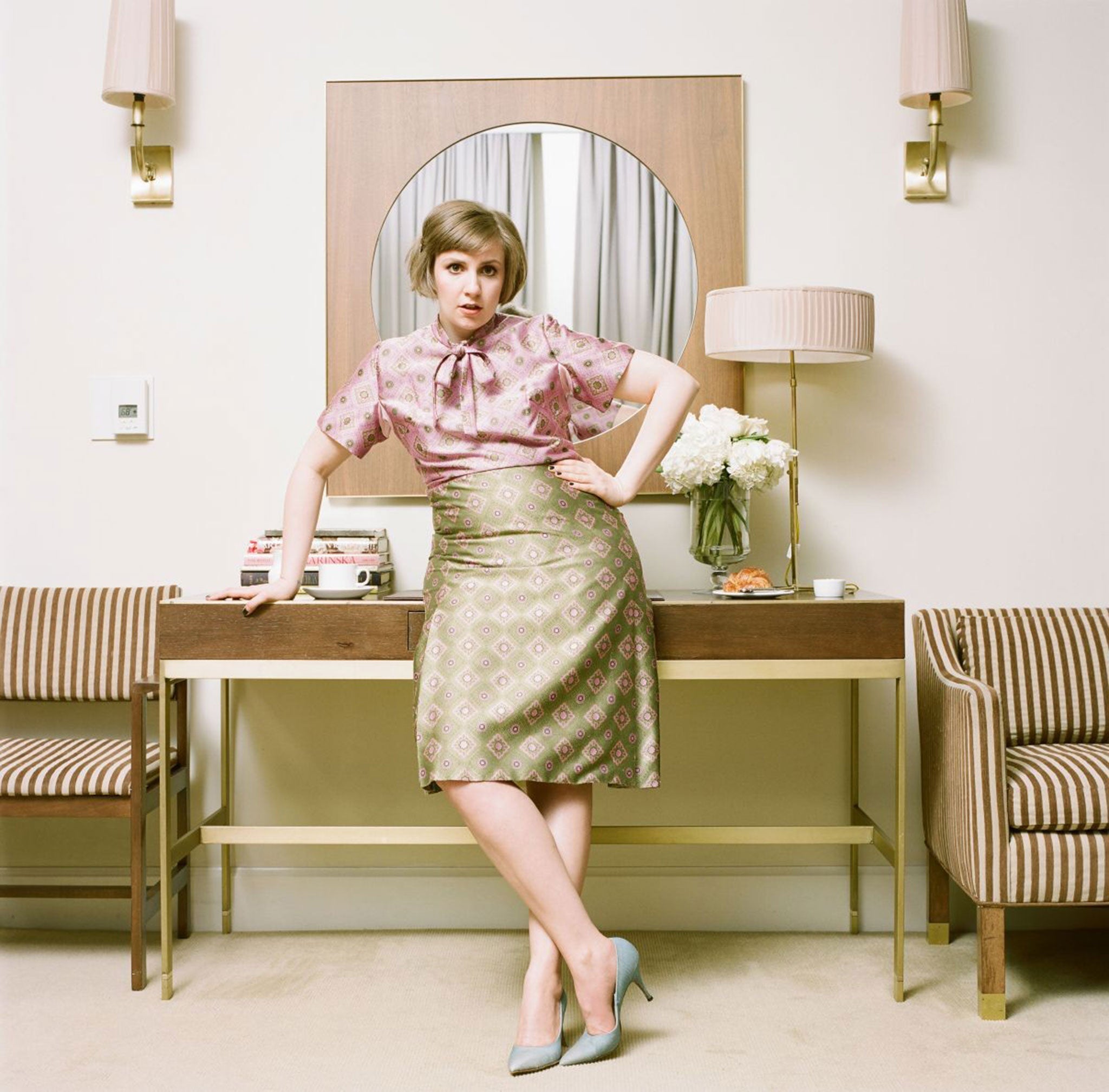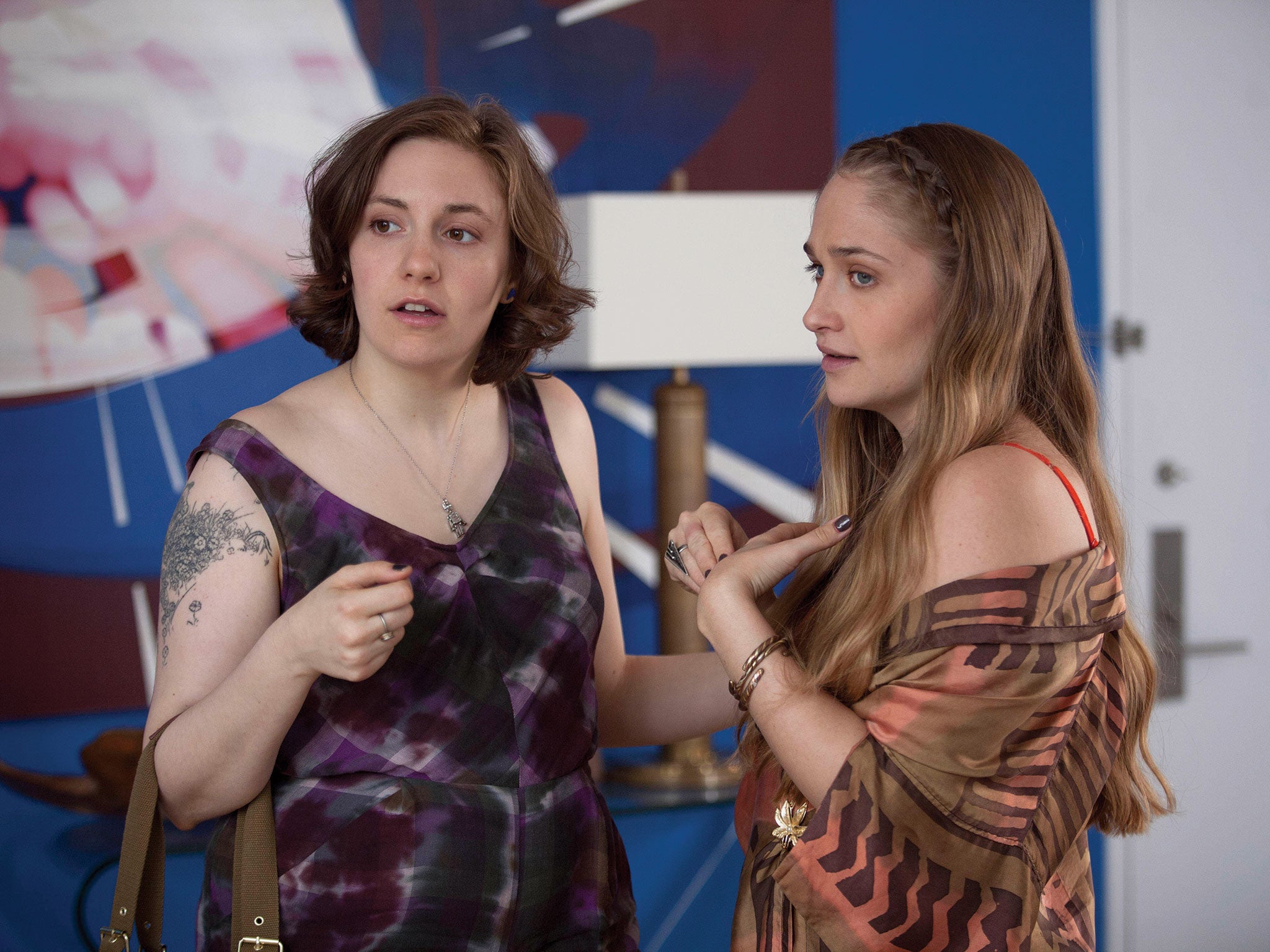Lena Dunham, Not That Kind of Girl, review: Roller-coaster memoir from the 'voice of a generation'
The creator and star of the TV hit comedy 'Girls', Lena Dunham, has written her memoir – at the age of 28

When Lena Dunham is nine years old she has her first therapy session. Her therapist asks her to share her three greatest wishes. “’A river, where I can be alone,’” I tell her, impressed with my own poeticism. From this answer she will know that I am not like other nine-year-olds.”
Fast forward a decade or so, and Lena Dunham is newly graduated and living in New York. By day, she works in a high-end children’s clothing shop, earning $100 a day selling overpriced cashmere cardigans, cord trousers and $320 rag dolls made out of vintage curtains to celebrities like Meg Ryan. By night, she parties, an endless whirl of gatecrashing, shared bowls of pasta in chic restaurants and late-night, stoned Seinfeld sessions. “A night of carousing never passed without me stepping outside the experience to think, Yes, this must be what it is to be young.”
That’s the thing with Lena Dunham, 28, the Golden Globe-winning creator of the HBO hit series Girls and ironically self-styled “voice of a generation” – her life is her art. Always has been. Everything that happens to her is near instantly processed as fodder for a story, whether the loss of her virginity, what she ate for lunch on Wednesday, her younger sister’s coming out, or the nude scene she filmed last week.
All of these stories, and many, many more, are now gathered together in Not That Kind of Girl, Dunham’s debut book, which is published next Tuesday. Already an actress, screenwriter, director and producer, Dunham can now add writer to her list of jobs. A rich writer, to boot: Random House paid her a $3.7m advance. Not bad for a girl who, aged 20, was so “paralysed” by writer’s block she set about translating poems from languages she didn’t speak. “Some kind of Surrealist exercise meant to inspire me, but also prevent me from thinking the perverse, looping thoughts that come unbidden: I am hideous. I am going to be living in a mental hospital by the time I am twenty-nine. I will never amount to anything.”
To judge by its cover – the title simply spelled out in retro, bold pink font – and introduction, Not That Kind of Girl looks like another subversive bible of 21st-century feminism. A ballsy paean to self-determination, body confidence and masturbation. Dunham explains that she bought a copy of Helen Gurley Brown’s 1982 manual Having It All at a thrift store as a kitschy trophy but soon found herself seduced by the message that any woman can be blessed with “love, success, sex, money, even if you’re starting with nothing.” Not That Kind of Girl is Dunham’s quirky update of that message, similarly structured under the headings Love & Sex, Body, Friendship, Work, Big Picture. “I am a girl with a keen interest in having it all, and what follows are hopeful dispatches from the frontlines of that struggle,” she writes. “If I could take what I’ve learned and make one menial job easier for you, or prevent you from having the kind of sex where you feel you must keep your sneakers on in case you want to run away during the act, every mishap of mine was worthwhile.”
This is not, however, a foolproof how-to-be-a-woman guide. It is more intimate, more flawed than that. It is dedicated to her family, to Jack (Antonoff, her rock-star boyfriend) and to Nora (Ephron, her late mentor). The latter’s influence is felt in the whipsmart observations that leap off every other page. Sex is “like shoving a loofah into a Mason jar”. A period of unemployment is summed up with the line, “I gained weight like it was a viable profession.” As for sleazy Hollywood execs, “what they want to take from you is way worse than your thong in the back of their Lexus. It’s ideas, curiosity, an excitement about getting up in the morning and making things.”

It features delightful New Yorker-style illustrations by her old school-friend Joana Avillez, which along with chapters made up of advice from her parents, inventories of what’s in her handbag (“Advil, Lexapro, Mucinex, Klonopin, and Tamiflu, for emotional security”), food diaries, lists of her top 10 health concerns and draft emails, give the book the feel of a teenage diary. It’s like Judy Blume but with rough sex and prescription drugs. The subtitle is “A Young Woman Tells You What She’s ‘Learned’”. As the inverted commas suggest, Dunham is painfully aware that she is still very much a work in progress.
Anxiety, medication and damaging sexual encounters are a recurring theme. As a girl, she worries about everything, from BO to dying in her sleep to Aids. There’s a Woody Allen-style tragicomedy to scenes in which she hosts a vegan dinner party as a teenager, or frets about catching anorexia. “I sat at the kitchen counter, eating my dinner and hoping I wasn’t next.” As a college student, sex rears its frequently ugly head. She is used, abused and in one harrowing episode raped by a Republican student called Barry. Where her own foibles and rarefied upbringing (in New York, the daughter of artists Carroll Dunham and Laurie Simmons) are dissected with comical flair, there is frequently a raw anger to her dealings with the opposite sex. It is a rallying call, delivered the only way Dunham knows how, through her own messy, bodily experience.
This is personal as political, and frequently fascinating it is too, but not every last detail of a life is worth retelling. At times, the relentless self-analysis becomes exhausting. Of course, no one recognises her self-obsession better than Dunham herself. Early on, she tells a story of finding out that her teenage internet boyfriend, Igor, has died. Her first response is to ask a mutual friend if Igor ever stopped liking her. Pathologically self-aware, she admits to being an “unreliable narrator”, to stealing her mother’s memories to refashion as her own. The lines between real life and art remain intriguingly blurred.
Meanwhile, there is tantalisingly little about the hit show which made her name. Dunham writes at length about Delusional Downtown Divas, the web-series she made with friends which prefigured it (“Why didn’t we tell this story, instead of just living it?”). On Girls itself, there is a bleak tale of a fling she had with one of the crew and some musings on sex scenes (“Good: when you are vaguely tan. Bad: when you have diarrhoea”). There is a magnificently angry, but too short, chapter about women in Hollywood – “treated like the paper thingies that protect glasses in hotel bathrooms –necessary but infinitely disposable” – and the powerful men who have tried to steal her honour and her work up to this point. Presumably she is keeping something back for future memoirs. The question is, after all this can there really be anything left for Lena to share?
Not That Kind of Girl by Lena Dunham is published on 30 September by Fourth Estate.
Join our commenting forum
Join thought-provoking conversations, follow other Independent readers and see their replies
Comments